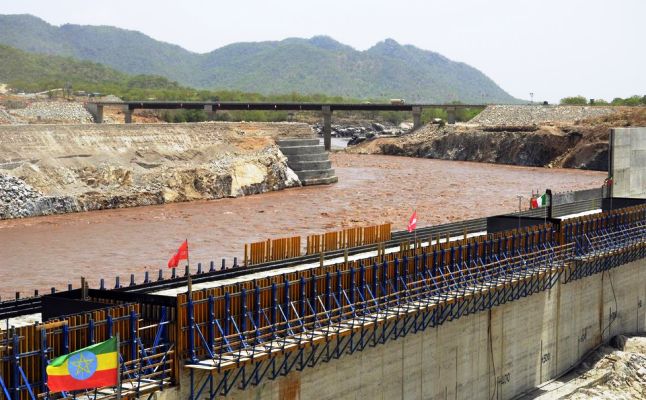Nile Basin ministers want investment projects scaled up
By Tesfa-Alem Tekle
October 20, 2016 (ADDIS ABABA) – Ministers in charge of water affairs in the Nile Basin countries have called for scaling up of preparations and implementation of investment projects in the Nile Equatorial Lakes sub-region.

According to a statement extended to Sudan Tribune, boosting investment projects at the region will enhance socio-economic benefits for the riparian states and communities and will further enhance Nile cooperation.
The ministers also commended progress made on the 80 Mega watt regional Rusumo Falls Hydroelectric project, whose construction is scheduled to start by January 2017 and be completed by February 2020.
The ministers also agreed to mainstream investment projects prepared by the Nile Equatorial Lakes Subsidiary Action Program Coordination Unit NELSAP-CU within their national development plans for implementation so as to contribute to energy, water and food security for the communities in the Nile Basin.
The 2016/17 work-plan of NELSAP-CU was approved with a $ 12.5 million budget.
Member states reiterated their commitment to continue supporting their institution NELSAP-CU through both cash and in kind contributions and those with outstanding arears pledged to clear them within the shortest time possible.
This is in recognition of the importance of sustainable Nile cooperation, in order to avoid consequences of non-cooperation such as environmental degradation, negative effects of climate change, limited coordinated monitoring of the resource base, and opportunities for joint action foregone.
The 19th annual NELCOM meeting witnessed a change in the top leadership of NELSAP, with the position of chairman of the Nile Equatorial Lakes Council of Ministers moving from Burundi to Sudan.
Accordingly, the current chairman is Mutaz Musa Abdalla Salim, Sudan’s minister of water resources, irrigation and electricity who succeeded Emmanuel Niyonkuru, Burundi’s minister of water, environment, land management and urban planning.
The change in leadership is in keeping with the NBI tradition of rotating the position of chairman of the NELCOM among the member states on an annual basis.
The meeting was attended by ministers in charge of water affairs from Burundi, Kenya, South Sudan, Sudan and Uganda. The Democratic Republic of Congo (DRC), Ethiopia, Rwanda and Tanzania sent representatives while Egypt did not participate.
The Nile Equatorial Lakes Subsidiary Action Program (NELSAP) is one of the investment arms of the Nile Basin Initiative (NBI). The latter is a regional intergovernmental partnership launched by the Nile Basin countries on February 22, 1999, to manage and develop the shared Nile Basin water resources in a cooperative manner, share substantial socio-economic benefits and promote regional peace and security.
The setup of NBI is informed by the principle of subsidiarity, that matters ought to be handled by the smallest, lowest or least centralized competent authority. Accordingly NELSAP-CU based in Kigali, Rwanda is responsible for preparing trans-boundary investment projects under the Nile Equatorial Lakes Subsidiary Action Program, aimed at contributing to energy, food and water security in the sub-basin.
Two other centers are a Regional Secretariat (Nile-SEC) based in Entebbe, Uganda which is executive arm of NBI responsible for the overall corporate direction and the Eastern Nile Technical regional Office (ENTRO) based in Ethiopia responsible for preparing trans-boundary investment projects under the Eastern Nile Subsidiary Action Program (ENSAP).
There are 10 NBI Member states, namely, Ethiopia, Sudan, Burundi, the DRC, Egypt, Kenya, Rwanda, South Sudan, Tanzania and Uganda.
Over the years, however, Eritrea has been participating as an observer.
(ST)
